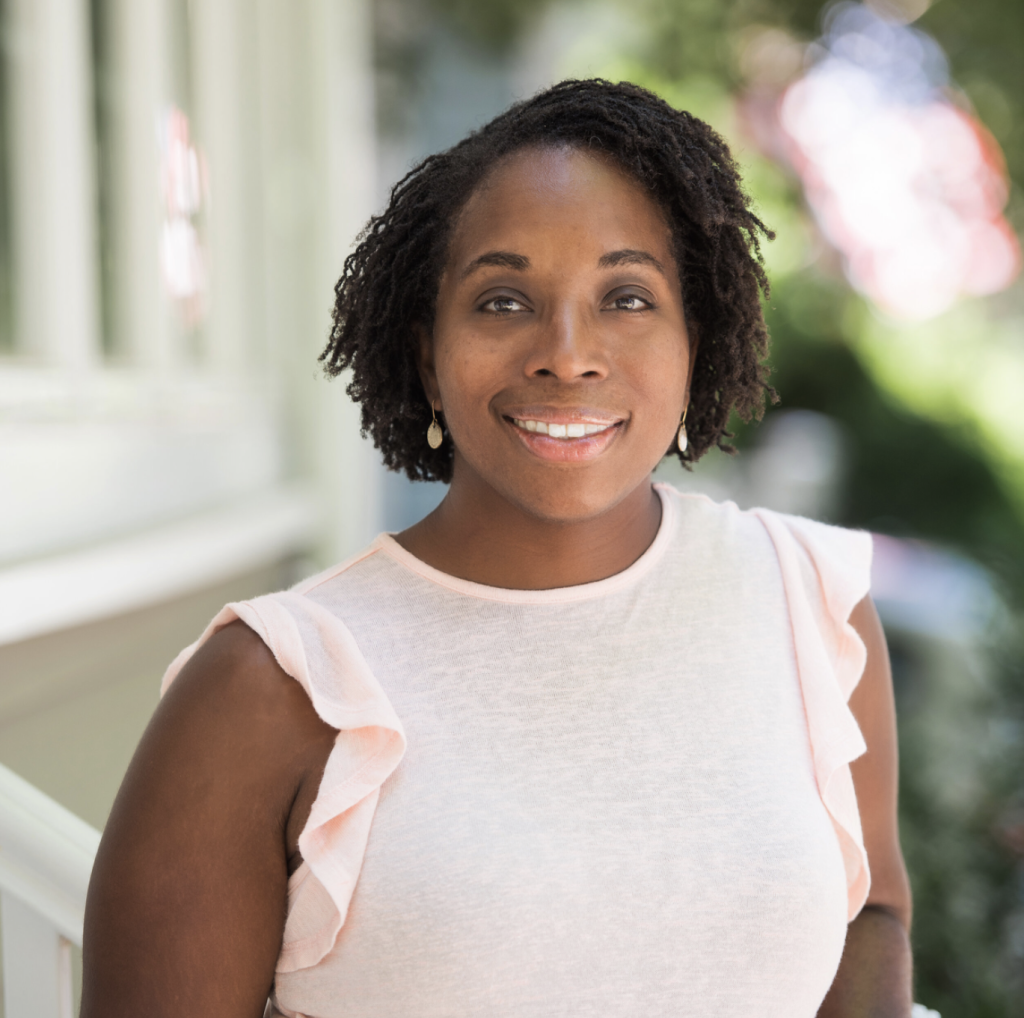“I realized I could see myself there”:
Nikkya Hargrove on her career as a writer and memoirist
September 2, 2025

James McNeill Whistler, “Violet and Silver — The Deep Sea” (1893)
You can listen to the introduction to this interview on Substack, Apple Podcasts, or Spotify.
Editor’s note
Nikkya’s writing in Mama, her first book, is visceral and punctuated in its vulnerability. She recounts each of the emotionally saturated events that frame her memoir with open-hearted precision, including her mother’s incarceration, the adoption of her half-brother, and the experience of falling in love with her now-wife.
“We keep the conversation light,” she recalls of visiting her mother in jail as a teenager. “We do not go deep. We do not ask about fears, wants, or needs.” Her book, however, does exactly that, venturing into all of the above and more. It was a privilege to get to speak with her about some of the stories behind those stories.
Jana M. Perkins
Founder, Women of Letters
Nikkya Hargrove is a LAMBDA Literary Nonfiction Fellow and has written about adoption, marriage, motherhood, and the prison system for The Washington Post, the Guardian, the New York Times, Scary Mommy, and Shondaland. She has worked for social impact nonprofits providing support to underserved communities throughout her professional career. She graduated from Bard College and lives in Connecticut with her wife and three children.

How did your childhood shape your ideas about what work looked like and what was possible for you?
Nikkya Hargrove: My grandparents were always working, whether it was leaving the house to go to their jobs, doing yard work on the weekends, or fixing up our home to welcome in guests. I constantly witnessed my caretakers being active members of society, be it church (which they did a lot of) or in our home. So, what I learned was that being busy was indeed work.
I am a natural nurturer, and today, with a family and all, I stay busy in our home, making it tidier or adding new furniture or cooking meals, but somewhere along my development from young adulthood I wanted to give more than to my church and my home. Going to college was something for me, as a Black woman, raised by educated grandparents — it wasn’t ever an ‘if’ I go to college, but what for. What did I want to BE?
I never truly considered college. Like I knew the expectation was that I’d finish high school and go to college, but it wasn’t until I got to high school, and dare I say liked it and thrived, that I realized I could see myself there! I’d always wanted to go into the medical field, wear the white coat, call myself Dr. and live the life of a doctor whom people respected because I was good at my job of bringing babies into the world.
In short, my family never limited me, and always encouraged me to dream, as long as getting a college degree was top of mind.
Fast-forward to today. How did the path to what you’re doing now unfold?
NH: I loved asking questions as a kid, and always found myself wondering what the ‘true’ answer was… curious about the nuts and bolts of the big questions in life.
I, naturally, loved my honors English class and my teacher Mr. Troller, who had a way with words that I admired. My writing skills improved because of him. Then one day, I sat talking with my grandfather while in high school, and he said, “I think you’ll be a journalist one day,” which felt like a statement out of the blue.
Today, I am a published author, write for my local paper, and own a bookstore in my town. I am exactly where I am meant to be, even if I never thought of myself as a journalist or reporter.

Did you have any mentors along the way?
NH: In childhood? I wouldn’t say I had any mentors, perhaps my teachers as a young kid. As I got older, that didn’t change much.
I looked up to my teachers, and respected them. School was my safe place, thankfully, and I know other people didn’t have the same experience as I did. While he was not, by any means, a mentor, my father, on the outside, achieved, and that’s what I wanted to do — to continually achieve. He went to college, had a job he loved, and protected our country, as a soldier in the United States Army. From afar, he rested on a pedestal.
In my day to day, I’d say my grandparents were my mentors who taught me about the importance of service, honoring commitments, having a religious foundation, being a trustworthy individual, and getting my education, because that is something no one can take away from you.
Today, I have mentors in my field, people who help me on hard days, and people who share with me their own struggles. I believe mentors are important because they’ve stood where you stood, and can advise you based on that, which is invaluable.

Tell us about a time when you had to take a big risk in order to move forward. What did that experience teach you about how to navigate difficult circumstances?
NH: Oh wow, there are so many to choose from. The most recent would be leaving my secure, full-time, with benefits job to open a bookstore and write full-time.
I am a hopeful person, and determined too, and my hopeful determination has never led me astray. The difficulties that come along with being a small business owner I am very much still learning, but not being able to financially contribute to my household is difficult. It’s forced me to be more grateful for what I am able to provide, and learning to be ok with that.

Where do you feel the most scarcity in your life? Where do you feel the most abundance?
NH: This is a great question! My life feels rather abundant I must say.
Sure, I’d love more money. I’d love to whip out another book, maybe a novel, but none of these things do I feel are scarce. Ok, maybe money, but I have a home, water, and food. My kids are happy and healthy. And I have love in my life.
If I truly think about scarcity, sadly, my unhealed childhood wounds… not having had the experience of being raised by my mother. I am grateful to have the life I have today and I get to experience it all with my chosen people.
What keeps you going?
NH: Coffee (and the idea of retirement).

Is there a project, initiative, or cause you’d like to highlight?

NH: My memoir, Mama: A Queer Black Woman’s Story of a Family Lost and Found, is available wherever you get your books. I hope you will consider picking it up, reading it, and then gift another copy to a friend or loved one.
In addition to going out and getting a copy of my book, support your local businesses. Be open and honest with them about what you want to have or see in their shop, about their food. Is it too salty? Too hot? Just perfect? I believe we need to foster a strong sense within our communities of communication. If your local business owner is never told their food is too…whatever, how will they know, how will they grow?

Where can our readers find you?
NH: I can be found on Instagram @nikkyahargrove and LinkedIn. I have a website too: nikkyamhargrove.com.